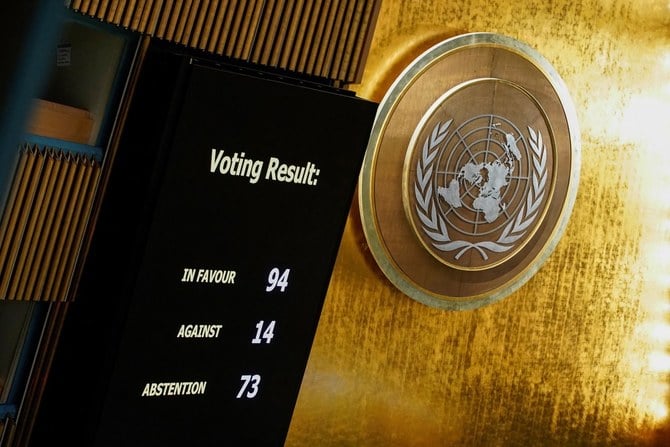
On November 14, the UN General Assembly adopted a resolution recommending the creation of a register to document damages caused by the Russian aggression against Ukraine. It received 94 votes for, 14 votes against, and 73 abstentions. Those who abstained were mainly African countries, but also Brazil, Israel, and India. The votes against came from Russia, Belarus, China, Cuba, Mali, the Central African Republic, North Korea, Syria, Eritrea, Ethiopia, Iran, Nicaragua, and Zimbabwe.
While it is worth remembering that UN General Assembly resolutions are recommendatory rather than legally binding, it is also worth noting that Russia was unable to block the adoption of this resolution. This is in contrast to a number of initiatives under UN Security Council regarding the war, where Russia has used its veto power to block passage.
The resolution states that the Russian Federation "must answer for any violation of international law in or against Ukraine (...) and that it must bear the legal consequences (...) including (reparations for) damages."
The resolution "recognizes...the need for the establishment, in cooperation with Ukraine, of an international mechanism for reparation for damage, loss or injury, and arising from the internationally wrongful acts of the Russian Federation in or against Ukraine," as well as "[r]ecommends the creation...of an international register of damage to serve as a record, in documentary form, of evidence and claims information on damage, loss or injury to all natural and legal persons concerned, as well as the State of Ukraine" caused by Russia's aggression.
However, Russia continues to deny the "consequences" of its so-called "special military operation" on Ukraine, and Russian representatives condemned the resolution on reparations. Russia's Permanent Representative to the UN Vasily Nebenzya stated that "the West is trying to give its actions at least some semblance of legitimacy to start spending hundreds of billions of dollars of sovereign assets frozen, and, in fact, stolen from the Russian Federation."
There has been even further recognition of Russian war crimes at international level. On November 30, the European Commission proposed the creation of a fund composed of €300 billion of blocked Russian Central Bank reserves and €19 billion of private assets to use for compensation payments to Ukraine.
Instead of calling a spade a spade and admitting that they are engaged in a war, Russia continues to portray itself as merely responding to aggressive actions by the West. Citing Russian UN Ambassador Nebenzya, Russian state-run outlet RIA Novosti wrote that the current initiative of European Commission President Ursula von der Leyen to set up a specialized court to prosecute Russian war crimes is nothing more than "a desire to grab frozen Russian assets."
In this way, Russia rejects the legitimacy of the decisions of international organizations, and they refuse to let them influence their policies at all because, as Russian officials constantly repeat, "everything is going according to plan." Commenting on the von der Leyen's remarks to journalists, Gazeta.ru quoted Ambassador Nebenzya saying that "[a]ll this is an attempt to cover up their lawlessness with unsuitable means. They want to a decision to squeeze us at the UN General Assembly, and then leave the UN behind to do it themselves, without asking anyone and without reporting to anyone."
Immediately blaming the West, Russian economist Chirkov argued to Russian audiences in pro-Kremlin tabloid Komsomolskaya Pravda that the EU was simply trying to "legally steal Russian money" and tried to explain that this ambition would be impossible to realize.
While the whole world is trying to help Ukraine restore its destroyed territories, Russia boasts of stability and continues to kill Ukrainians, repeating their narratives about the invincibility of their country and the ineffectual decisions of international organizations.
